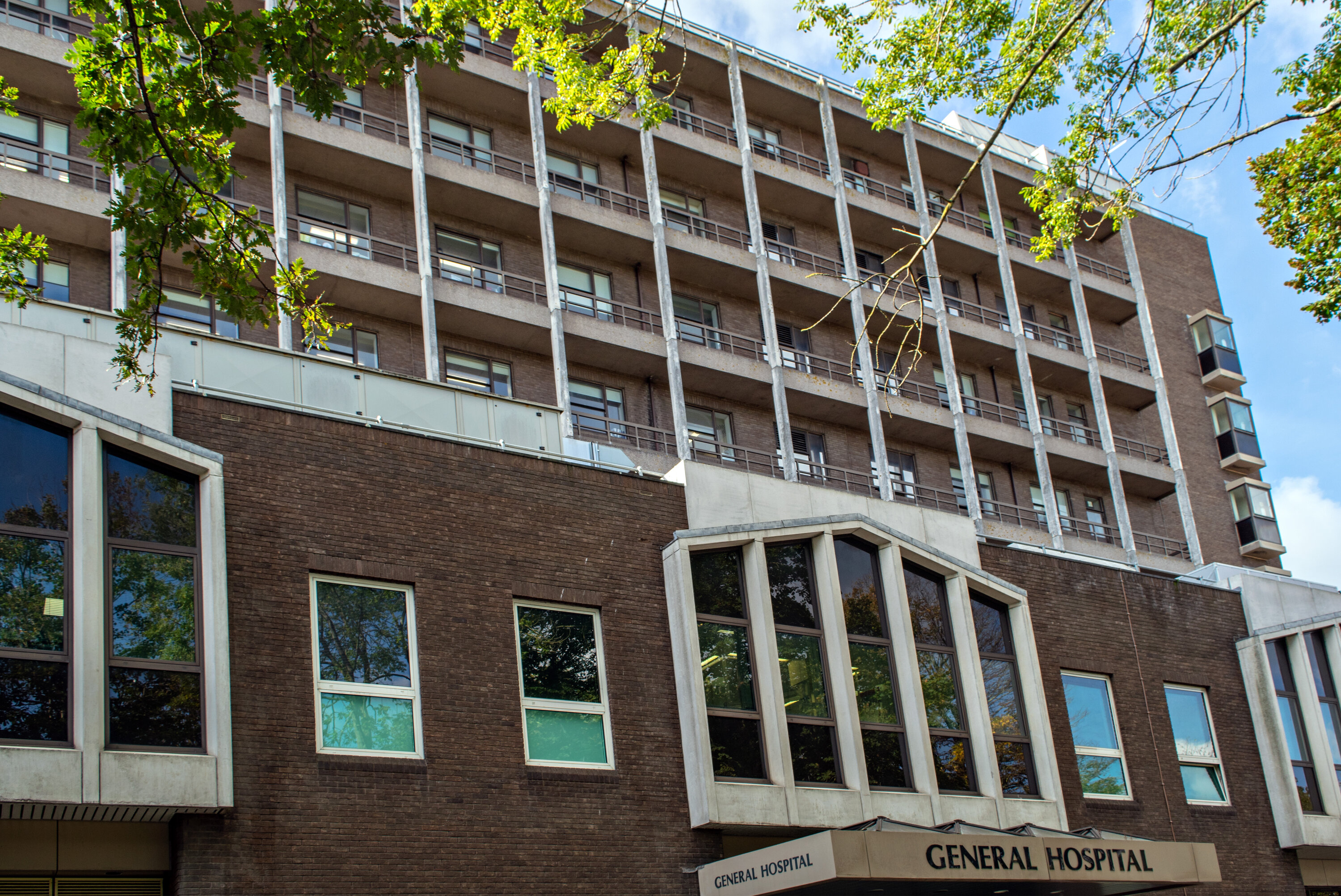


A senior consultant brought in to drive improvements in Jersey's health service has delivered a damning post-mortem of his experience of the department, and fired parting shots at the standard of care – going so far as to admit that, if he lived in the island, he would choose to have treatment elsewhere.
The Health Scrutiny Panel is today interviewing three former senior leaders in the island's Health Department.
First up was Professor Simon Mackenzie, who came to the island in January 2023 as the clinical lead in a five-person “change team”.
The group of experts were brought in after a report by Professor Hugo Mascie-Taylor found serious issues with governance at the Hospital and raised major concerns over the management and working culture within the Health Department.

Pictured: Professor Hugo Mascie-Taylor is also due to be interviewed by the Health Scrutiny Panel today.
Prof Mackenzie confirmed his resignation in May, citing a lack of support from the Health department in his resignation letter – something which Health Minister Tom Binet publicly disputed.
In today's interview with the Health Scrutiny Panel, Prof Mackenzie did not touch on the reasons for his departure.
However, he slammed the island's Health service as being in need of “fundamental change”.
“If people don’t believe there is a problem to be fixed, then they won’t fix it,” said Prof Mackenzie.
He criticised the standard of healthcare in Jersey as “generally lower than the standard I would expect to see in a similarly-sized hospital”.
“I have told both Health Ministers that, knowing what I know, if I were a Jersey resident I would choose to have my healthcare elsewhere,” he added.
Prof Mackenzie criticised the perception that there are too many managers in Jersey's Health Department.
"The people of Jersey will be better served if you allow managers to manage," he said.
"There is not too much management in HCS; there is insufficient effective management."

Pictured: "There is not too much management in HCS; there is insufficient effective management."
The health expert explained that, before coming to the island, he thought that it would be easy to make changes quickly due to the small size of the Health Department.
He said: "I thought it would be quite a short journey from making a decision to implementing the decision; it was anything but.
"I can absolutely get things done faster in a hospital in England."
Prof Mackenzie put this down to the lack of centralisation of services.
"HCS cannot decide how it wants to prioritise its HR and IT and finance resources; everything has to be referred out to the Government of Jersey," he said.
The clinical lead suggested that the Health Department should sit outside of the civil service.
"I would make it autonomous, like the Ports of Jersey, and have it run separately," said Prof Mackenzie.
"You could then have a Chief Officer who you could genuinely hold to account because they had all the authority to do that."
Prof Mackenzie also criticised the lack of clinical structure and "purpose" in the Health Department.
“I believe you are providing some services in HCS that you should not be providing on the island," he said.
Prof Mackenzie explained that in a local health service, it is unnecessary to provide highly specialist care for specific medical scenarios which are uncommon occurrences.
He pointed to the fact that there are only three centres in the UK which do paediatric heart transplants, for example.
"It's better that people here get excellent treatment somewhere else," he said. "And you know this as a large number of people do already go to the UK for treatment."
Prof Mackenzie also raised concerns that highly specialist consultants would become “de-skilled” if they were working in Jersey as they would rarely encounter specific medical scenarios and get out of practise.
The health expert criticised the number of “single-handed consultants” in Jersey who are the only consultant working in their specialism in the island.
“Your consultant should be working in networks with larger groups of consultants in hospitals,” he said.

Pictured: Professor Mackenzie recommended that local consultants should spent eight to 10 weeks per year working in their specialism in a UK hospital.
Prof Mackenzie outlined the benefits of having more than one consultant in each specialism – particularly those from different generations – to allow clinicians to question each other's practice.
He recommended that local consultants should spent eight to 10 weeks per year working in their specialism in a UK hospital to build up a "network of support".
Prof Mackenzie described some of the treatments provided in Jersey as “old-fashioned”.
“You’re not getting the best use of money,” he said. “We should always want to do things in the most efficient way.”
Prof Mackenzie suggested two possible ways that Jersey's Health Department could be improved.
“I think your system does need redesigned,” he said.
The first option, according to the health expert, would be to develop a formal strategic relationship and alignment of Jersey's Health services with a UK hospital for both clinical and governance support.
Prof Mackenzie suggested that the "obvious" option would be an NHS hospital in Southampton or London, but acknowledged that a private organisation could also be a possibility.
He said that using this relationship to develop common standards of governance would make it much easier for HCS managers and give them expertise and insights.

Pictured: Professor Mackenzie said that Jersey should develop a formal strategic relationship with a UK hospital for both clinical and governance support.
"At the moment, your executives lack any level of peer support," said Prof Mackenzie.
He criticised the fact that the island's current relationships with UK hospitals are often based on "personal connections" and can be "chaotic".
Prof Mackenzie continued: "I would dispute the myth that you have bargaining power because of your additional income to these hospitals, as HCS's entire budget is less than the divisional budget of many of these organisation."
His second suggestion – which Prof Mackenzie dubbed the 'Norman Tebbit' option after the former Conservative politician – would be to contract the island's health services out to be run by an external organisation.
Prof Mackenzie explained: "You could, if you want to be really radical, contract [Jersey's healthcare] out to an organisation.
"I accept for political reasons, you probably wouldn't want to do that, and it would involve writing very tight specification.
"But again, most healthcare can and should be provided on Jersey."
Prof Mackenzie also admitted that he had concerns that the changes implemented during his time in Jersey would be easily undone now that he has left the island.
He said: "We made some progress in the 15 months that I was in Jersey with clinical governance, but it's largely about putting in place structures.
"My worry is – because Cathy [Stone, another member of the 'change team'] and I constantly had to chase things up and find it hadn't been done and chase them again – that now I've left, and whenever she leaves, it will revert."

Pictured: The health expert had concerns that changes implemented during his time in the Health Department would not last long.
He pointed to the perceived reluctance among consultants to accept that NICE guidelines do now apply in Jersey.
"We agreed back in July last year that NICE guidelines do apply in Jersey – not because NICE say they do, but because we say they do," said Prof Mackenzie.
He slammed the island's “ridiculously ambitious plan” to survey various medical guidelines and decide which ones to apply where.
"You have better things to do with your time," he said.
Prof Mackenzie also said there needs to be "a change of attitude in the medical community"
He explained: "I understand their frustrations with the management team, but the management team also have their own challenges, and you need to bring them together again.
"The key we need to achieve is a relationship mutual respect between managers and clinicians, because when you don't have that, it always ends in tears."
Prof Mackenzie said that many of the problems in Jersey's Health service have taken a long time to arise, so "you just can't hang it on any single generation of either clinicians or managers".
"Replacing the people is unlikely to give you much change," he said. "The system you have, pushes people into this."
The health expert added: “My regret looking back is why did I not achieve as much as a hope to achieve and I think it partly because of the way that the system is designed.”
When asked about improvements made during his time in the island, Prof Mackenzie said that there had been "some".
He said that the way that serious incidents are reviewed has improved – but admitted that there is “still a timescale problem” in that area.
Prof Mackenzie continued: “We agreed, at least in principle that NICE guidelines were the default, which has helped with the management of some emergency situations.”
He also pointed to progress in the maternity department, but admitted that this had been "helped along by the fact that there was going to be this inquest into the death of Amelia Clyde-Smith".
In April, an inquest into the death of baby Amelia – who was just 33 days old when she passed away – found that "failings in the midwifery team" and "neglect" on the labour ward contributed to the tragic outcome.

Pictured: Professor Mackenzie admitted that changes in maternity had been "helped along" by the "public scrutiny" of an upcoming inquest.
Today, Prof Mackenzie said: "When we arrived, the organisation was not in the position to realistically say it had addressed the issues raised by that case.
"It's terrible to say that the pressure of having to face public scrutiny allowed us to put some force into that, but it required a degree of persistence that was surprising.
“I probably would have been more forceful, rightly or wrongly, than some of the executives were.”
However, Prof Mackenzie pointed to the feedback from the 'Getting It Right First Time' (GIRFT) review which suggested that all of the problems in HCS are "fixable".
"All your problems are fixable, said Prof Mackenzie. "The question is whether you accept there is a problem and therefore have the will to fix it."
Outlining the key issues, the health expert pointed to the fact that “there is no clinical governance in the organisation”.
He said that job plans and appraisals for consultants are “not good enough”, and said that there is "no evidence" that Health is effectively using the information gleaned from external audits.
Prof Mackenzie said that medical staff "need to be able to show that they're good".
“You need to accept that what we expect of doctors has changed," he said. "We expect doctors to demonstrate that they can continue to be competent."
He said that "HCS does have data, but is not very good at using it".
"Why does that matter?" he said. “Because [without data], you literally you don’t know what you’re doing.
"You don’t know what you’re treating and therefore you’re flying by the seat of your pants.”
He said that the Heath Department “needs to have a culture that accepts benchmarking”.
Prof Mackenzie said: “You need to accept you have a problem – and then you need to agree the diagnosis.”
Concluding the hearing, Prof Mackenzie said that there was nothing he said today that he hadn't already told former Health Minister Karen Wilson and current incumbent Tom Binet.
“The question is why it hasn’t changed,” he said.
“My time in HCS, and I say this with regret as a doctor, was bookmarked at both ends by consultants rejecting the need for any change on their part – and everyone needs to change.”
Prof Mackenzie said he would like to see influential doctors stepping up into senior roles – but acknowledged that “the position of the few who have, has been very difficult”.

Pictured: Professor Mackenzie criticised local consultants for "rejecting the need for any change on their part".
He said: "The thing I found most difficult in Jersey was that the way that decisions are actually made is very different to the way they are made in theory.
"I don't know whether you can solve that problem in the very closed community, but it is the fact that it is far too easy for a consultant to nab a politician and paralyse things."
Prof Mackenzie continued: "If the government does not have faith in its management team, by all means, get a different management team. You just need to accept that you're going to have to pay them off. But the management team that you choose, needs to have your support.
"The challenge that you now have is to put the principles of what I've said into action – and I think that that will require this change in structure, because what I see is a recurrent pattern."
The Health Scrutiny Panel will also today interview former Health Advisory Board Chair, Tom Hayhoe – who stepped down in April in "mutual agreement" with the Health Minister due to "differences in working styles" – and his interim predecessor, Professor Hugo Mascie-Taylor.
Follow Express for updates...
Comments
Comments on this story express the views of the commentator only, not Bailiwick Publishing. We are unable to guarantee the accuracy of any of those comments.